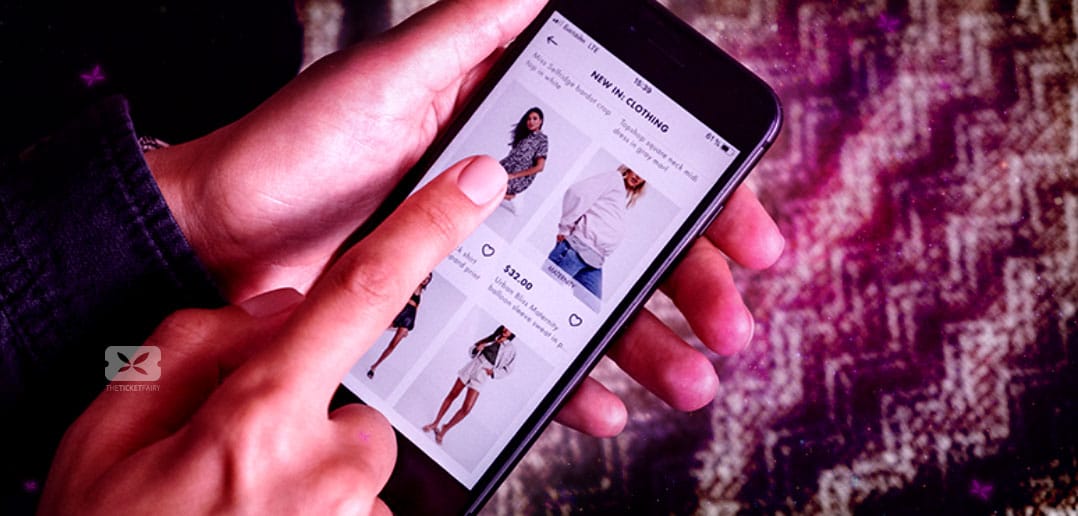As technology advances, the limits between virtual and real continue to blur. During the pandemic, our social connections were virtual. This virtual setting has continued to influence our social lives. The Web3 has already exposed us to virtual concerts, gaming, fashion brands selling limited edition apparel, pride event celebrations, educative seminars, and much more.
Simply explained, digital fashion brands are similar to a Snapchat filter or a highly skilled image edit, giving customers an outfit purely to don virtually. These virtual garments and accessories are applied to a customer’s image to give it a more natural appearance. It’s comparable to subscribing to a streaming service or renting a movie, except the client owns the virtual outfit and it’s specifically tailored for them.
Financial services company Morgan Stanley forecasts that the digital fashion business might be worth USD 50 billion by 2030. They also stated that the clothing manufacturing business consumes a significant quantity of fresh water, produces 20% of global wastewater, has a high carbon footprint, and contributes significantly to microplastic pollution in soil and water. Additionally, a digital outfit requires fewer physical or natural resources to create. And there is no actual physical production, packaging, or logistics involved.
We look at some of the fashion houses that have stormed into the fashion industry digitally.
The Fabricant
The Fabricant, based in Amsterdam, was founded in 2018. It is a digital fashion house that makes unique 3D apparel and virtual fashion accessories. Clothing is designed for both brands and retail stores. Some of their notable works include works with sports brand Puma, Italian apparel, footwear, and accessories brand Napapijri, footwear brand Buffalo London and Soorty Enterprises – a sustainable textile manufacturing company based in Karachi, Pakistan.
‘The Fabricant Studio’, the company’s co-creation platform, also allows artists to design, exchange, and wear digital fashion NFTs in the metaverse. According to their website, using digital samples instead of tangible clothes during the design phase reduces the brand’s carbon footprint by up to 30%.
In 2019, the Fabricant was also responsible for auctioning off one of the most expensive outfits on the blockchain for USD 9500.
Visit The Fabricant Studio by clicking here
Republiqe
Republiqe is a clothing brand based in London that specializes in NFT creations, apparel in the Metaverse, and virtual apparel. Established in 2019, the brand is built on three primary pillars: creativity, sustainability, and technology. In addition to its present digital clothing offering, the brand is hoping to expand into video platform services.
The brand has also provided necessary tips for taking a photograph to achieve the best outcomes when a digital tailor virtually fits the clothing to the image. Their digital clothing is said to be 100 percent sustainable, which ensures customers are not leaving a harmful impact on the planet.
Visit the Republiqe website by clicking here
Auroboros
Auroboros is a luxury fashion house founded in 2018 in London, UK. Their products mirror today’s scientific and technical breakthroughs through physical couture and digital clothing.
The fashion house presented its maiden Biomimicry Digital ready-to-wear collection in 2021 at London Fashion Week, showcasing a 14-piece nature-inspired collection. DJ, designer, model, and stylist Sita Abellan worked on the collection. Auroboros recent endeavors include a virtual dress for the late Marilyn Monroe, who recently debuted in the metaverse, and collaborating with Ai-Da, a humanoid AI robot who sported a digital Bodysuit.
Shared on the brand’s website is a vision statement that reads, “We seek to evolve the luxury industry into deeper dimensions – redefining how we imagine, design, and affect clothing consumption.” Auroboros began with artists at The Sarabande Foundation, which was established to foster creative and innovative talent by late British fashion designer Lee Alexander McQueen.
Check out Auroboros on Decentraland by clicking here
Did You Know:
In a 2018 analysis done by credit card company Barclaycard in the UK, almost nearly one in 10 customers admit to purchasing clothes to share images on social media, and then they proceed to return them.
Tribute Brand
Tribute Band is a retail clothing and fashion brand specializing in a contactless and virtual fashion. It was launched in April 2020 as the world’s first direct-to-consumer digital fashion company, based in Zagreb, Croatia.
The company consists of professionals with different expertise in fashion, design, 3D art, and technology. Still in its infancy, Tribute Band has already partnered with Venezuelan fashion designer Carolina Herrera on a dress worn by singer-songwriter Charli XCX, fashion brand Jean Paul Gaultier, and has a store in Decentraland, in addition to their own designs.
As shared via Tribute Brand on LinkedIn on July 6, 2022, the company raised a USD 4.5M seed round led by venture capital company Collab+Currency. Gala Marija Vrbanicthe, the company’s founder and an avid gamer, said during her Ted Talk in January 2022 that she was motivated to venture into digital fashion due to her childhood experiences dressing up as video game characters. She concluded by saying, “Digital Fashion is not an alternative but an evolutionary step and we are currently at the beginning of this new era.”
Click here to view Tribute Brand’s digital products
The Dematerialised
The Dematerialised is a virtual product marketplace that provides new tactile experiences and revenue sources for fashion designers and customers. Its innovative approach to digital fashion assets aspires to challenge established fashion business models of production, consumption, and ownership. Karinna Nobbs and Marjorie Hernandez founded the brand, which is powered by the LUKSO blockchain, an IT services company developed by Marjorie Hernandez.
The brand has banded with fashion labels Karl Lagerfeld, Spectrum of Footwear – a Brazilian footwear agency, and clothing brand Rebecca Minkoff for digital attires and NFT projects. While shopping, customers can also pay for their digital assets with a credit or debit card, Apple, Google Pay, or cryptocurrencies.
When asked how the fashion world is responding to this new concept, co-founder of The Dematerialised Marjorie Hernandez mentioned, “I think the fashion industry is really open and perceptive. I think they did learn their lesson… they thought e-commerce was not going to happen for them and then all of a sudden it did happen, we all do it.” She added that as a creator, artist, or designer, you don’t have to be in or near a fashion capital anymore; all you need is the internet to obtain access to the digital fashion world.
This was a virtual fireside chat during the fourth annual NFT. NYC conference held in June 2022, an event where The TicketFairy premiered its NFT functionality in 2021.
Shop on The Dematerialised store by clicking here
Additionally, ‘This Outfit Does Not Exist’ is a platform that promotes digital fashion through education, research, and presentation. Each month explores a different theme, ranging from digital design and distribution to Metaverse marketing. Follow the founder Daniella Loftus’s Instagram handle to stay updated with the latest from the digital fashion world.




